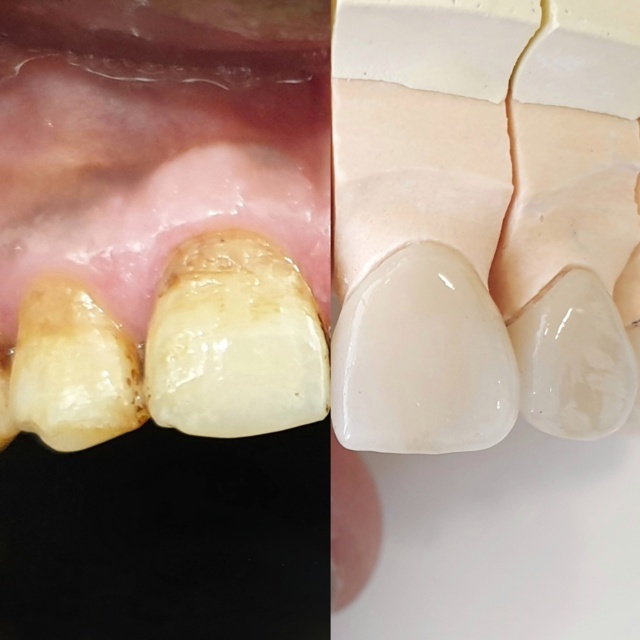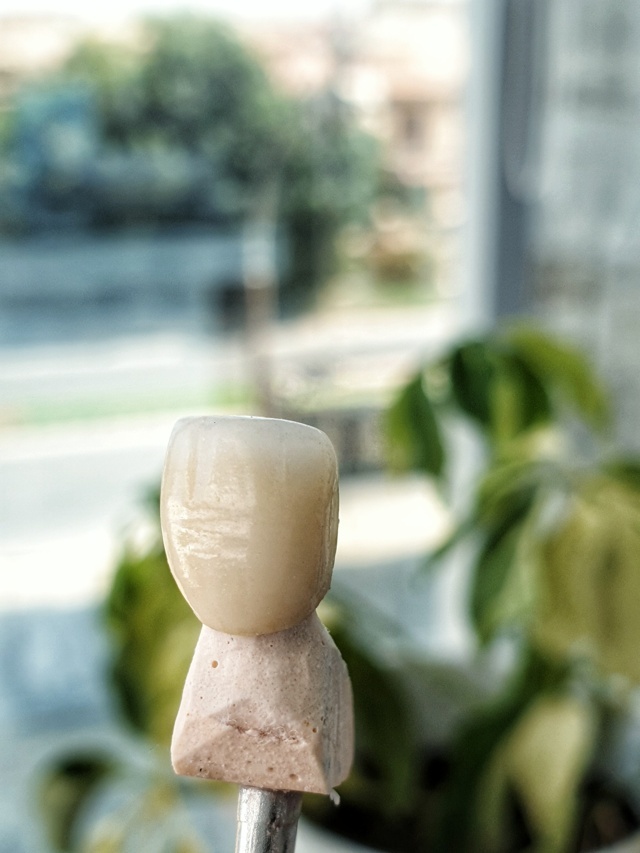
Things that you need to know!
With each passing moment, the world of dentistry is continually changing and upgrading its procedures, making them better. For Root Canal Treated teeth, dentists have always had a solution in the form of durable dental crowns.
What is a crown on a tooth?
A Crown on a tooth or a dental crown is a tooth prosthesis (dental cap) that fits onto the tooth once the tooth’s natural surface has been prepared after removing all the debris, decay, and damage. Dental crowns save the tooth from further breakdown and help to strengthen it. Dental crowns are preferred, especially for root canal-treated teeth, because, after the treatment, the tooth becomes dead and has reduced the structure to bear any biting or chewing force. Placing a crown on the remaining tooth structure and the newly placed filling material ensures that all chewing forces are uniformly distributed reducing the risk of tooth fractures.
What are dental crowns made up of?
Dental crowns can be made of;
- Gold alloy
Dental Gold Crowns can be made of 12-22 karat gold. Patients usually provide the dentist with a piece of gold jewelry (ring, necklace, earrings, etc.) that can be melted to make their dental crown. Gold crowns were considered to be a sign of luxury and lavishness several decades ago. Now, they are not preferred when used on the teeth, since they will be visible in the smile (anterior teeth); they compromise the aesthetics, can cause allergies in some patients, and are expensive. Whereas, due to their excellent strength, ability to bear massive masticatory forces, and are long-lasting, they were and are still used in the posterior teeth (the ones at the back).
- All-Ceramic crowns
Widely used because of superior aesthetics, biocompatibility, strength, and durability.
- Porcelain fused to metal crowns (PFMs)
porcelain is fused with metal. Hence a better crown is produced with pleasing aesthetics and is more substantial, less expensive than all-ceramic crowns.
- Zirconia crowns
they are new to the world of dentistry and have the best qualities of all. Excellent aesthetics, robust, long-lasting, and durable.
All this knowledge can get mixed up in your head, and it is best to visit a dentist when your research is done. Dr. Shoaib Durrani is always available to answer the queries of his patients at Durrani’s Dental Clinic. Call us at +92-21-37227441 to book an appointment.
How long do dental crowns last?
Just like with every other dental prosthesis, with proper care and regular oral hygiene maintenance, dental crowns have been clinically proven to last anywhere from 5 to 25 years.
Dental crowns are a long-lasting dental procedure, which protects the tooth and maintains dental health and function.
Is it painful to put a crown on your tooth?
Essentially the process of a crown placement is completely painless, especially in the case of Root Canal Treated Teeth. This is because an RCT tooth is a dead tooth, so nothing hurts while preparing the tooth and taking impressions. Similarly, the second and final appointment is completely painless when the crown is permanently cemented or bonded onto the tooth. If the tooth is a vital non-RCT tooth, local anesthesia is administered for a painless experience and the second final appointment requires no anesthesia even.

Is it better to get a crown or a filling?
A dental crown or a dental filling are two different treatment options. If the cavity is small, the tooth will only need a filling. But if the hole or trauma has extensively destroyed the tooth, damaged its cusps and walls, then after the filling or the root canal treatment, the remaining healthy tooth structure has to be supported by a dental crown; otherwise, the treatment will be useless to the tooth.
It is best to let the dentist do their work because they know better. People usually ignore getting a crown after the final filling of a root canal treatment because the pain subsides; that is where the actual damage starts; not getting a crown can lead to tooth loss.
How long after a crown does it hurt?
Since the majority of the dental crowns are placed on root canal treated teeth, there is no pain associated with the crowns from day one! In the case of a vital tooth that required a crown to be placed, no pain should be expected. However, the tooth might be sensitive for the first 3 to 5 days. This sensitivity eventually subsides on its own.
In the event where a patient feels pain in the same tooth, it is important to rush to the dentist and get it clinically and radiographically evaluated to find out the cause behind it, since it is not normal.
Can you get an infection under a crown?
Re-infection or secondary caries is common when either there is negligence on the dentist’s part; the treatment is not done right, or the patient is at fault; by not following instructions properly and keeping low hygiene maintenance. So, the possibility is always there in the case of a crown, just like there is in a natural tooth. Always important to stay proactive with your oral health.
Which is better? A porcelain crown or a ceramic crown?
Ceramic crowns are made up of either porcelain or other ceramics. Hence porcelain or ceramic dental crowns are essentially the same. But there are two kinds of porcelain or ceramic crowns; All Porcelain Crowns (or all-ceramic crowns) and Porcelain Fused-to-Metal Crowns; both have their pros and cons, as discussed above. All-Ceramic Crowns are preferred for the front (anterior) teeth as they have the best aesthetics, whereas, Porcelain Fused-to-Metal Crowns can be used for both fronts (anterior) and back (posterior) teeth.
As suggested by the dentist, the type of dental crown that you choose depends on the tooth type (front or back) and your priorities (as the cost is a factor to be considered).




